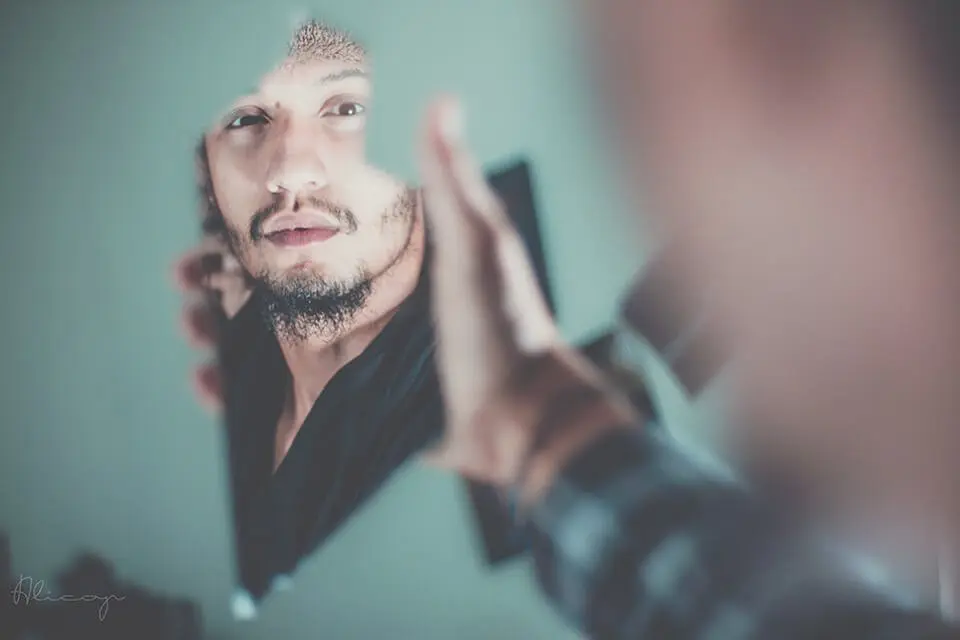Confidence is a healthy belief in one's self and one's capabilities. It enables us to tackle challenges head-on and maintain a healthy self-image of ourselves. Meditation is a way for us not only to live more examined lives and reap one of the dozens of scientific benefits of meditation but also become more confident. In this article, we'll explore how meditation improves confidence and how to improve confidence with meditation.
How meditation improves confidence
Confidence is not a fixed human characteristic. It can change with time, experience, and some self-development. Meditation is a practice you can implement into your daily life to help you build more confidence. But how exactly does meditation improve confidence?
Confidence in one's self and abilities often relies on one's mental strength. Your ability to respond to self-critical and negative thinking can determine how confident you are in your everyday life. Meditation can give you the tools and teach you how to manage these kinds of thoughts.
5 ways to improve confidence with meditation
It's important to remember that what one wants to build is healthy confidence. It can go wrong in one of two ways. The first is that if the confidence is toxic, it can become arrogance or narcissism. The other way is to build confidence that leads to naivety or disillusionment. If we're mindful of this as we work to make our confidence through meditation, we can develop a healthy self-belief.
Here are five healthy ways to improve confidence with meditation as well as what kind of meditation to start with depending on your situation.
1. Ground yourself in reality

Often, a lack of confidence comes from the swirl of thoughts in our heads that makes us not believe in our ability or ourselves. These thoughts are often dwelling on the past and mistakes we made, or worrying about the future and us failing at a particular endeavor.
Meditation is a way to ground us in reality and into the present moment. Staying in the present moment allows us to stay focused on the task at hand and not let feelings and thoughts of doubt to distract us.
You can practice this with a simple mindfulness meditation session. Start seated with your eyes closed. Bring your attention to your breath in its natural state. Don't change the breath here; simply watch the stages of a complete breath, from the inhale to the exhale. Sit and observe the breath for a few minutes.
As you do this, thoughts will intrude and attempt to distract you, or more often than not, distract you. The key here is to gently bring your attention back to the breath when you notice this, without any judgment. This is an excellent way to practice mindfulness and be more present.
2. Become aware of negative thoughts and emotions

Confidence is understanding that you can tackle any emotional outcome you may face. You can start by recognizing all negative thoughts and emotions as they arise instead of resisting them or allowing yourself to become caught up in them.
"I'm not good enough."
"I can't do it."
"I don't deserve anything good that may come from this."
Becoming aware of these kinds of negative thoughts is the first step to improve confidence with meditation. From there, you can turn this awareness into positive intentions and then eventually, decisive actions. You'll start speaking up for yourself more often, you'll block out self-criticism, and you'll have more confidence in yourself giving you thicker skin.
Try a Vipassana meditation the next time you see negative thoughts and feelings swirl around in your mind when you're about to do something that requires your confidence. Sit with your eyes closed and watch your breath. Don't change it, watch each inhale, and each exhales with an open awareness. Then, notice the thoughts and feelings that come and go through the mind as you watch the breath.
Notice the self-criticisms and doubt. Try to become curious about these thoughts and watch them without adding a story to them or getting lost in them. Remember, you didn't author these thoughts. You can't predict or know the next thought you will have.
See where you physically feel these thoughts or emotions, too. Become curious about the sensations and watch them. This will help you build some resilience to these thoughts and not allow yourself to get caught up in them. When you find the mind has wandered or you become lost in these thoughts, simply bring your attention back to the breath.
3. Elevate your mood

To improve confidence with meditation, try a practice that elevates your spirit into a positive one. How you frame things and the intentions you bring in to a task can influence the outcome.
If you're about to tackle a project that you're cynical about, you can't expect high-quality work. If you're about to spar with an opponent, but you're caught up in an argument you had the night before, it will distract you from performing at your highest potential.
To change and improve your mental state, try a loving-kindness meditation practice. Loving-kindness is a simple practice of invoking feelings of love and compassion by visualizing and wishing good on others and yourself. It may sound esoteric but it's actually a simple way to generate good mood hormones through positive thinking.
Start with simple wishes for friends and loved ones such as "may they be happy" and progress to wishes for confidence on yourself such as "may I be confident."
4. Visualize yourself succeeding

Visualization is a form of meditation that many professionals, such as athletes and actors, use to increase their confidence before a stressful performance. It's also how to teach meditation to children, if you're looking for a good practice to start with.
There's nothing magical or mystical about it. All you're doing is rehearsing in your mind the best possible outcome. Too often, when we have low confidence, we're repeating and thinking about the worst possible outcome. Visualization meditation is a much more productive and useful approach.
To start, sit on a cushion or chair with your eyes closed. Take a comfortable posture and begin with a few deep breaths before relaxing your breathing.
Next, visualize yourself doing and accomplishing the task that you may not feel confident about at this very moment. It could be a presentation or public speaking. It could be performing in front of an audience. It could be an awkward conversation you're about to have. Imagine yourself now doing this thing with complete confidence. Picture your face and how you would look doing this thing confidently. Imagine how it might feel as you are accomplishing this task with ease. Think of the best-case scenario for yourself and play it out in your mind.
5. Confront your fears

There are times where facing your fears is the best option when it comes to building confidence. We sometimes lack the confidence because we fear the worst outcome. However, when we think through the worst outcome, it's often not as bad as we first imagined, or it's at least something that we could recover and learn from.
A straightforward way to confront your fears that will improve confidence with meditation is negative visualization. This entails imagining the worst-case scenario and allowing it to play out in your mind to help build some resistance to it.
We should note that this visualization will not work well if you're about to do something dangerous or life-threatening, such as skydiving or life-saving surgery. We recommend the earlier visualization practice for those kinds of scenarios. This visualization is best suited for situations where there's a fear of rejection, embarrassment, or failure.
To start, sit on a comfortable chair or cushion with your back upright, maintaining good meditation posture. Next, close your eyes.
From here, begin to imagine the worst outcome possible for what you're looking to build some confidence for. Allow yourself to observe this play out without any attachment. Act as if you're watching a movie. Don't allow yourself to step into the screen.
From here, begin to exaggerate the events of this worst-case scenario. See how bad you can make it. Notice how you feel or the thoughts that build up. Be gentle with yourself here, and don't allow yourself to judge these thoughts and feelings. Simply notice what you notice. Notice if it's as bad or worse than you initially thought. Continue to sit with these feelings and see if you can accept them.
Finally, once the worst-case scenario plays out, imagine how you would deal with it, cope with it, and react to it. How would your life change? Could you recover? How would you become better from it? How can you feel better about yourself?
Start improving your confidence
Meditation offers plenty of options when it comes to improving confidence. Choose the one that best suits your needs and situation. Above all, use meditation to supplement the things you do to improve your self-confidence. There are plenty of ways to build confidence outside of meditation.
Is there a meditation practice you use to become a more confident person? Let us know in the comments below.







